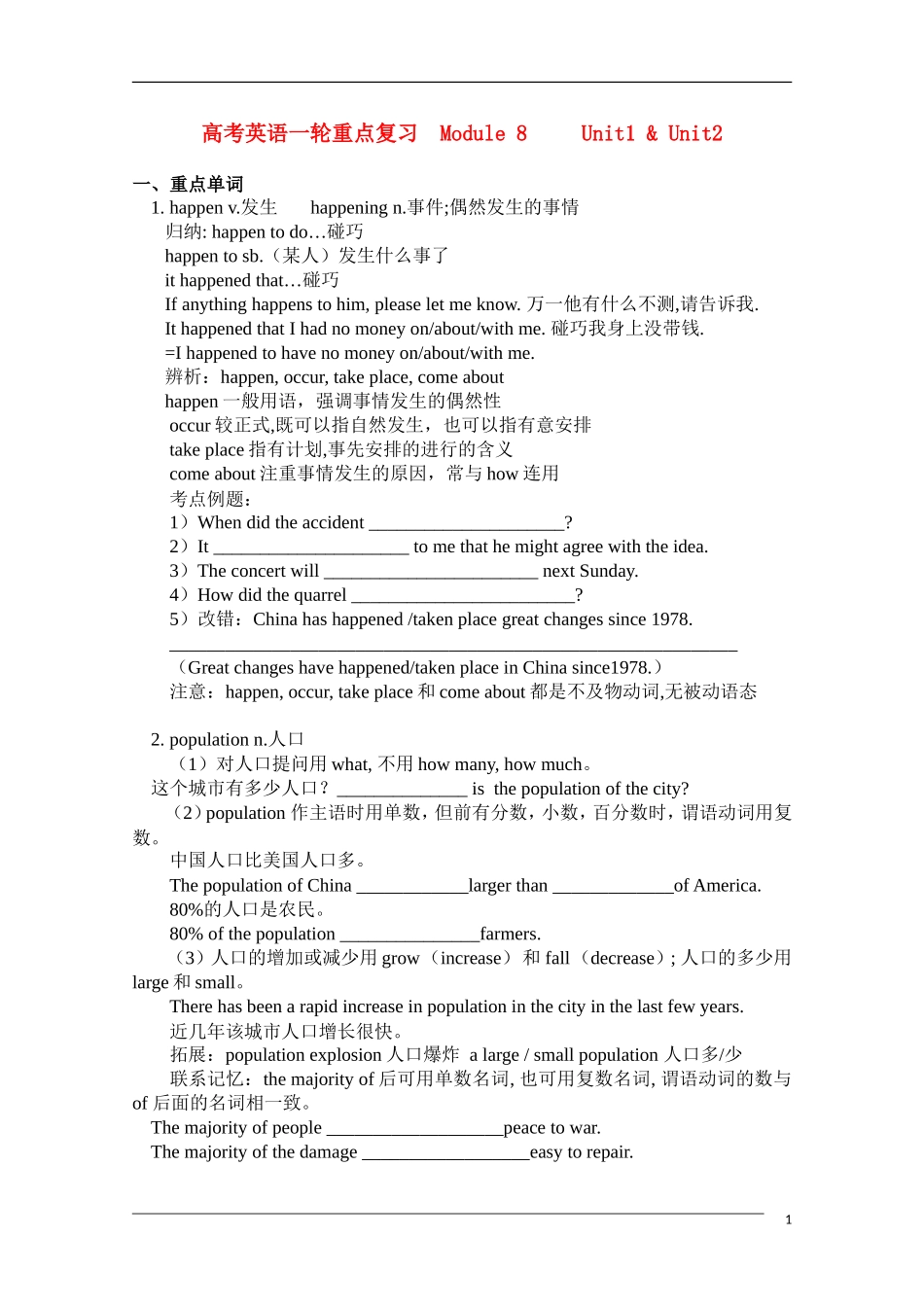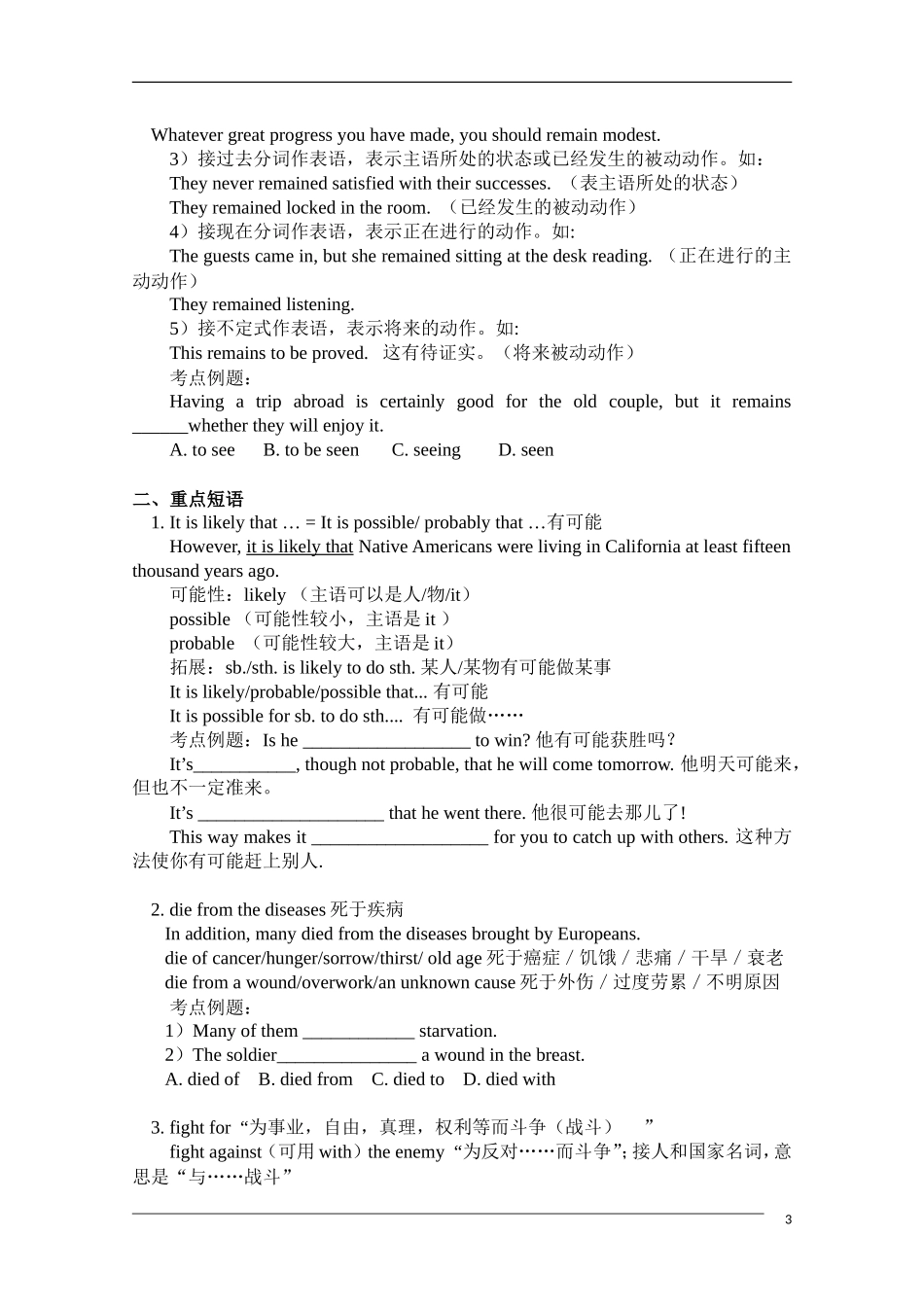高考英语一轮重点复习 Module 8 Unit1 & Unit2一、重点单词1. happen v.发生 happening n.事件;偶然发生的事情归纳: happen to do…碰巧happen to sb.(某人)发生什么事了it happened that…碰巧If anything happens to him, please let me know. 万一他有什么不测,请告诉我.It happened that I had no money on/about/with me. 碰巧我身上没带钱.=I happened to have no money on/about/with me.辨析:happen, occur, take place, come abouthappen 一般用语,强调事情发生的偶然性occur 较正式,既可以指自然发生,也可以指有意安排take place 指有计划,事先安排的进行的含义come about 注重事情发生的原因,常与 how 连用考点例题:1)When did the accident _____________________?2)It _____________________ to me that he might agree with the idea.3)The concert will _______________________ next Sunday.4)How did the quarrel ________________________?5)改错:China has happened /taken place great changes since 1978._____________________________________________________________(Great changes have happened/taken place in China since1978.)注意:happen, occur, take place 和 come about 都是不及物动词,无被动语态2. population n.人口(1)对人口提问用 what, 不用 how many, how much。 这个城市有多少人口?______________ is the population of the city? (2)population 作主语时用单数,但前有分数,小数,百分数时,谓语动词用复数。中国人口比美国人口多。The population of China ____________larger than _____________of America.80%的人口是农民。80% of the population _______________farmers.(3)人口的增加或减少用 grow (increase) 和 fall (decrease); 人口的多少用large 和 small。There has been a rapid increase in population in the city in the last few years. 近几年该城市人口增长很快。拓展:population explosion 人口爆炸 a large / small population 人口多/少联系记忆:the majority of 后可用单数名词, 也可用复数名词, 谓语动词的数与of 后面的名词相一致。 The majority of people _...


